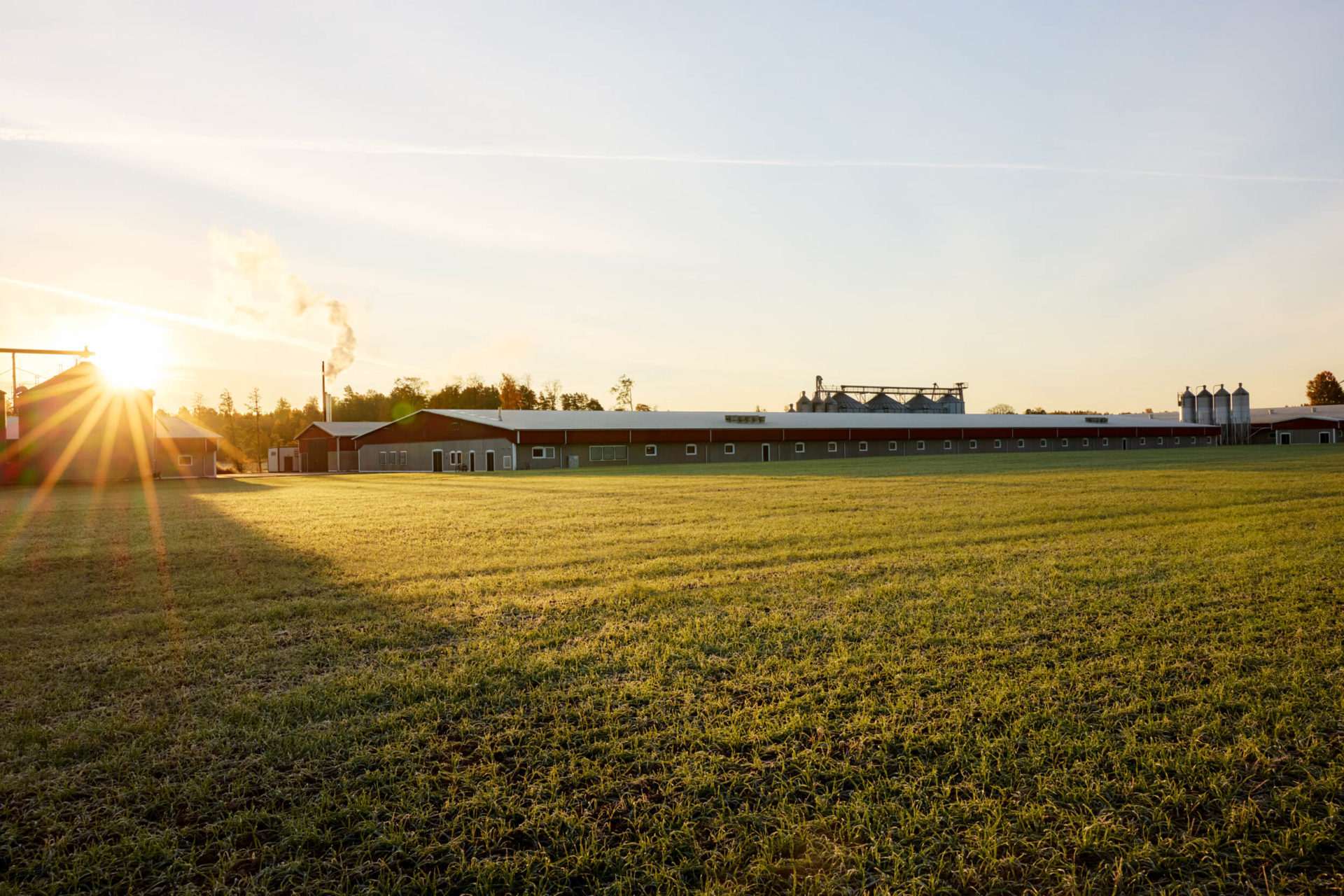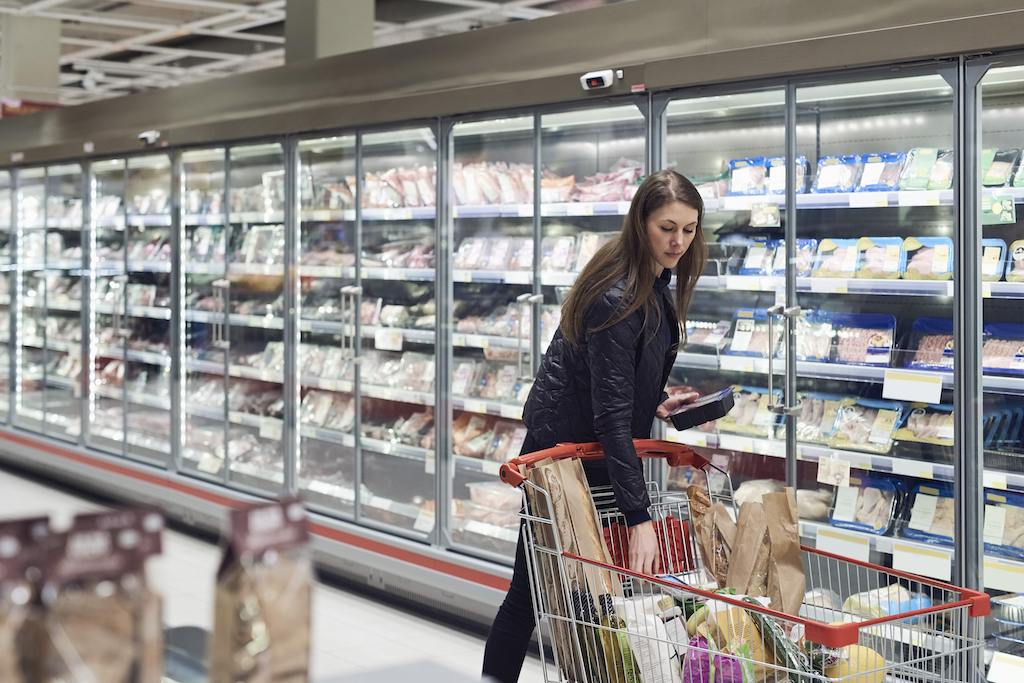
Product quality and food safety
Product quality and food safety are at the top of Scandi Standard’s list of priorities. We work continuously to improve processes and governance, based on certified management systems. All our production facilities hold third-party certification in accordance with BRC or IFS, two international quality management standards for food safety. This includes requirements on quality-assured working methods, buildings and equipment, risk analysis in accordance with Hazard Analysis and Critical Control Points (HACCP), product traceability, staff competence and hygiene procedures, as well as the verification of products and processes. Moreover, we comply with the specific requirements that different customers place on us as a company, or for a particular product or market. The challenges that we need to address include the risks of unwanted bacteria and quality deficiencies or food fraud when purchasing ingredients. In recent years work on food safety has intensified under the leadership of a Group manager for quality and product safety. We use a number of measurable indicators to monitor and control product quality and identify any non-conformance. These include temperature and cleanliness at the plants, the presence of bacteria, controls of finished products and complaints.

Careful control of bacteria
We pay particular attention to checking for the presence of any pathogenic bacteria, i.e., bacteria that can cause illness. In our Nordic countries, our chickens must be completely salmonella-free, and campylobacter must be at the absolute minimum level possible. Regular inspection of both these bacteria is conducted in the chicken pens or upon the arrival of chickens at lairage. Campylobacter is a common bacteria found worldwide both in humans and in animals, including chickens. In 2022, campylobacter was found in 11.1 per cent of the flocks, which was Scandi Standard’s lowest figure yet, and on track towards the longterm target 5–10 per cent. Salmonella is very rare in the Nordic countries but common in other parts of the world. Hand hygiene and cooking chicken properly are important for avoiding infection.
Critical complaints
Scandi Standard applies a shared definition and process for what is referred to as critical complaints. These complaints include recalls from customers or consumers, the presence of foreign objects in the product, allergens or incorrect content or sell-by dates. Assessments are made locally in the respective country. The trend has been positive during the year, and the number of critical complaints are at a historically low level, with two critical complaints in 2022, compared with seven in 2021. In 2021, a new definition for critical complaints was introduced to clarify the concept, after which only complaints related to food safety, consumer health and legislative requirements are included in reporting.

Clean label policy
We have had a Group-wide Clean Label Policy since 2020 which is based on current legislation and describes our shared stance on healthy products and establishes a framework for product content. The policy is established in all countries and applies to all products and recipes within our own brands, which account for 36 per cent of Scandi Standard’s sales. As a tool for this work, each country has a database containing information on ingredients and their contents and composition. Three Group-wide indicators are monitored on a monthly basis: The use of the flavour enhancer, monosodium glutamate (MSG/E621), artificial colourings and artificial flavourings. The objective is for all of these to be zero.
Our 2022 results show that E621 was present in four Danish products, corresponding to 0.3 per cent of products from our own brands. Artificial colourings were found in one Norwegian product. As regards artificial flavourings, there is still a need for them in some local products in order to meet taste preferences and requirements to avoid allergens. Examples include pesto in Finland and smoke flavouring in Sweden. Artificial flavourings were found in 2.2 per cent of products from our own brands.
Correct product information
Marketing and product information to consumers is undertaken locally by each of the Group’s companies and brands. Our Code of Conduct stipulates that Scandi Standard must provide accurate and non–misleading information in its labelling and marketing of products. All marketing must comply with relevant legislation on ethical practice. Claims and information about the content and properties of our products must be transparent and fact-based.
Follow-up
• Critical complaints and product recalls.
• Quality and food-safety culture
• Clean Label Policy compliance
• Salt reduction
• Compliance with Supplier Code of Conduct
Milestones 2022
• Critical complaints at a historically low level, only two reported during 2022
• Start-up of program aiming to conduct external sustainability ratings of suppliers
• 97% Clean Label Policy compliance
Goals and KPIs – Product quality and food safety
| Long-term target | Result 2022 | Result 2021 | |
| Critical complaints 1) | 0 | 2 | 7 |
| Product recalls | 0 | 0 | 6 |
| Salmonella, infected flocks | 0–0.5% | 0.2% | 0.2% |
| Campylobacter, infected flocks | 5–10% | 11.1% | 11.9% |
1) These complaints include recalls from customers or consumers, the presence of foreign objects in the product, allergens or incorrect content or sell-by dates.